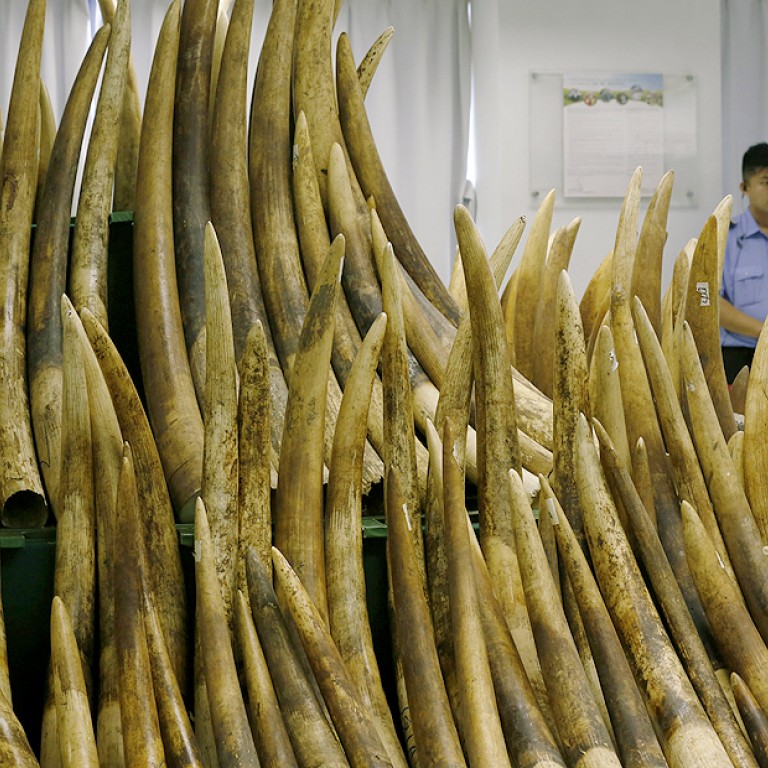
Update | First batch of tusks burned in Hong Kong as part of world’s largest ivory destruction project
1.2 tonnes of elephant tusks destroyed as part of fight against the illegal trade
The first batch of the city's 30-tonne stockpile of seized ivory was reduced to ashes yesterday, a symbolic move aimed at boosting the fight against the illicit trade.
About 1.2 tonnes of elephant tusks, some seized as far back as the 1970s, were destroyed at a government waste treatment plant in Tsing Yi, the first stage of the world's largest ivory destruction project.
The ivory was cut into 50cm chunks, put into drums, then loaded into a rotary kiln with chemical waste and incinerated. The residue was then stabilised and sent to a landfill.
Watch: Hong Kong begins to destroy 28 tonnes of illegal ivory stockpile
The destruction of 28 tonnes of ivory, approved by the Agriculture, Fisheries and Conservation Department in January after it earlier rejected the move, will take place in batches and is expected to be complete within two years. About three tonnes will be processed each month.
Some of the stockpile will be kept by for education or scientific purposes.
People buy ivory thinking it will go up in value. This will send a message it won’t
Hong Kong is one of the world's biggest transit hubs and markets for contraband ivory, consistently ranking fifth in the world in terms of quantity seized since the global trade in ivory was banned in 1989.
Before the burning, Environment Secretary Wong Kam-sing said the destruction reflected the seriousness the city attached to the trading endangered species.
"It's is our duty to ensure that the international trade in these species is properly regulated and that any illegal trade is effectively dealt with," he said, adding that all future seizures would be processed the same way.
John Scanlon, of the Convention on International Trade in Endangered Species of Flora and Fauna, said the burning would highlight the ivory trade as a "serious crime". "People buy ivory thinking it will go up in value. This will send a public message it will not," he said.

